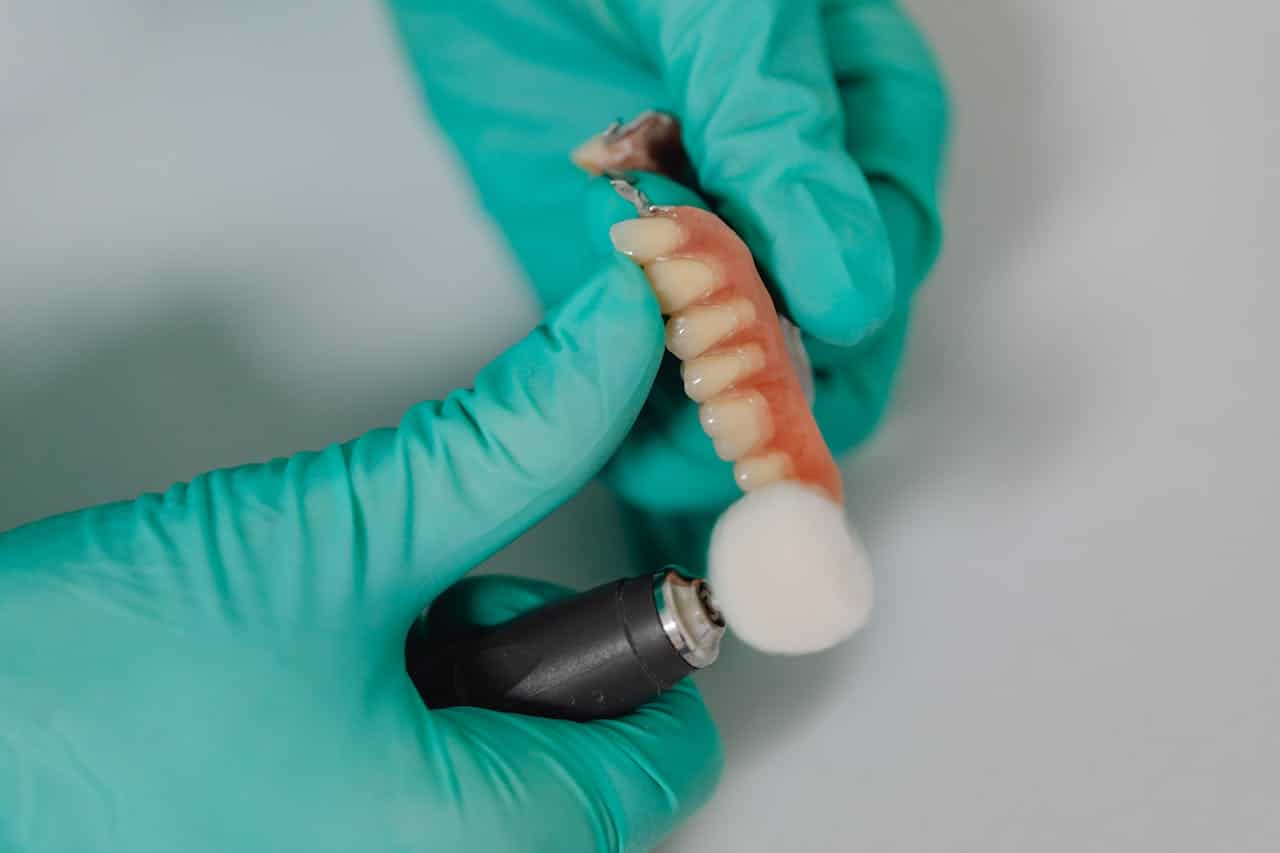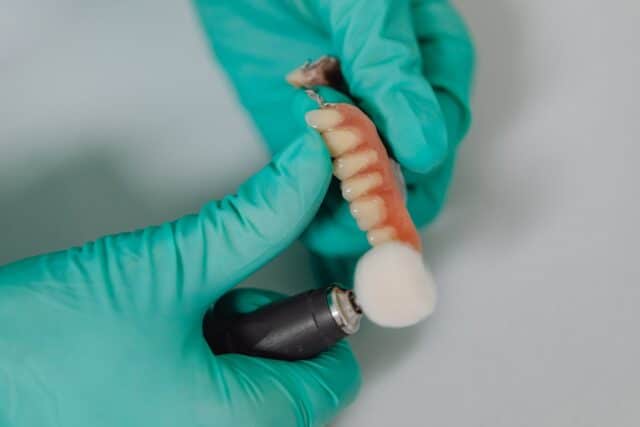
Losing all your teeth can affect your ability to chew and speak, as well as your confidence. Fortunately, advancements in dental technology have made it possible for individuals without any teeth to restore their smile through dental implants.
If you’re wondering, “Can you get dental implants if you have no teeth?”—the answer is yes. This blog will explore everything you need to know about dental implants for individuals with no teeth, including available options and the procedure itself.
Can I Get Dental Implants With No Teeth?
Whether you are missing a few teeth or all of them, dental implants can offer a permanent and secure solution for tooth replacement. Implants act as synthetic tooth roots that provide a secure foundation for replacement teeth.
Unlike traditional dentures, which rest on the gums, dental implants are anchored in the jawbone, giving them greater stability and longevity. This makes them an excellent option for people who have lost all of their teeth, as implants can support a full set of dentures.
How Do I Know If I Am a Candidate?
While dental implants are a fantastic solution for many people, not everyone is an ideal candidate. To determine if you qualify for dental implants, you’ll need to undergo an evaluation by a dentist or an oral surgeon.
Here are some factors they will consider:
Bone Density and Health
The success of dental implants depends mainly on the health and density of your jawbone. If you’ve been without teeth for a long time, bone loss may have occurred, but this doesn’t automatically disqualify you. Bone grafting, a procedure that rebuilds the jawbone, can be an option if you lack sufficient bone density.
Overall Health
Your general health can affect your eligibility for dental implants. Conditions like uncontrolled diabetes or immune system disorders can affect the healing process. Smoking may also reduce the likelihood of success with implants.
Oral Hygiene
Good oral hygiene is crucial, even if you no longer have natural teeth. A clean, infection-free mouth will heal faster and improve the long-term success of dental implants.
What Are the Available Options for Dental Implants?
Several types of dental implants are available, each designed to cater to different needs and situations. If you have no teeth, you might be a candidate for full-mouth restoration options, such as implant dentures, All-on-4 dentures or bridges. Let’s dive deeper into each of these options.
Implant Dentures
One of the most common options for individuals without teeth is implant-supported dentures. These dentures are designed to “snap” onto dental implants placed in the jawbone. Usually, two to four dental implants are required to support a complete set of dentures. Once the implants are in place, the dentures can be designed to snap onto them, providing a stable, comfortable and long-lasting solution.
All-on-4 Dentures
The All-on-4 technique is revolutionary for replacing an entire arch of teeth (either upper or lower) using just four strategically placed dental implants. This procedure is ideal for those who want a more permanent and stable solution without needing an individual implant for each tooth.
One significant advantage of the All-on-4 system is that it can often be done without bone grafting, even in patients who have experienced some bone loss. The implants are placed at angles to maximize the available bone, making it a quicker and less invasive solution.
Bridges
If you are missing several teeth in a row but not all of them, an implant-supported bridge may be an excellent option. This type of bridge uses dental implants to anchor a row of prosthetic teeth in place, filling in the gap left by multiple missing teeth.
An implant-supported bridge can replace a section of teeth without needing individual implants for each missing tooth. This option is durable, comfortable and highly functional.
How Long Is the Procedure and Recovery?
The process for getting dental implants varies depending on the complexity of your case, the type of implants and whether you need additional procedures like bone grafting. Here’s a general timeline of what you can expect:
Initial Consultation and Planning
During the first visit, your dentist or oral surgeon will conduct a thorough evaluation to assess your jawbone and oral health. Based on this evaluation, they will create a personalized treatment plan, which could involve several stages over a few months.
Placing the Implants
Once you’re ready for surgery, the dental implants are placed into your jawbone. This procedure is usually done under local anesthesia, although sedation options are available for those who are anxious. After the implants are placed, you’ll need to wait several months for them to fully integrate with the bone—a process called osseointegration.
Placing the Prosthetics
Once the implants have fully fused with the bone, the prosthetic teeth are attached next. If you’re getting implant dentures, All-on-4 dentures or an implant-supported bridge, your dentist will attach the final prosthetics at this stage. This is usually done in a single appointment, and you’ll leave the office with a fully restored smile.
Recovery Time
The initial healing phase after implant surgery typically takes about a week, during which you may experience swelling and discomfort. Complete recovery and integration of the implants into the jawbone can take three to six months, but this process is generally painless.

Visit Archpoint Implant Dentistry To Get a New Smile
When it comes to dental implants, you deserve the best care from the most experienced professionals. Archpoint offers everything you need for a successful and seamless experience: specialized implant dentists, the latest in dental technology and a state-of-the-art on-site lab to ensure precision and customization for every patient.
Whether you’re seeking a new smile in just one day or need expert care for a more complex case, our team of doctors at three convenient locations—Dallas, Fort Worth and Southlake—are ready to help you regain your confidence.
Don’t wait any longer to restore your smile. Schedule a consultation today and take the first step toward a lifetime of comfort and confidence.








